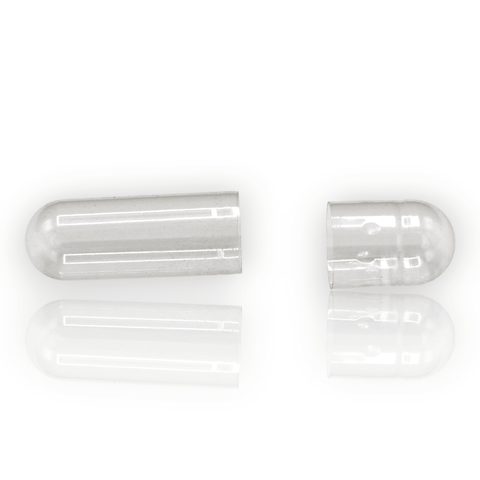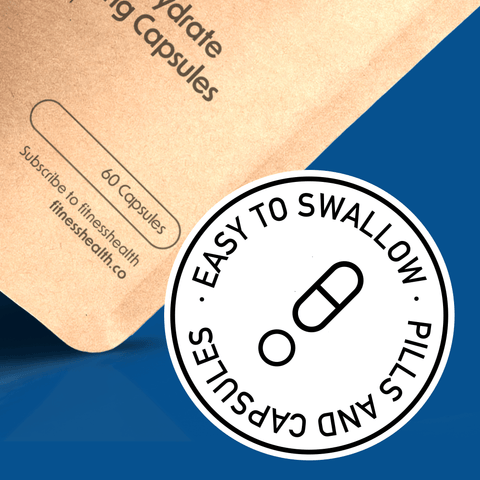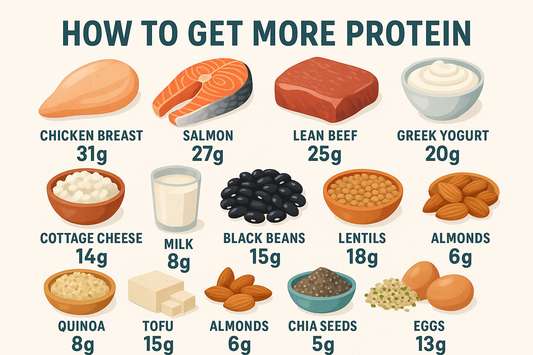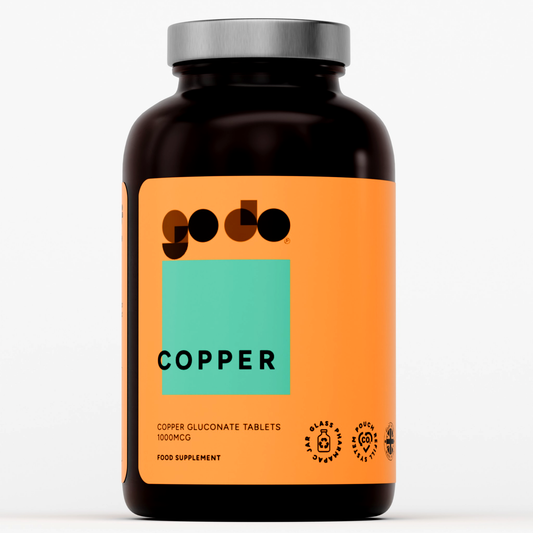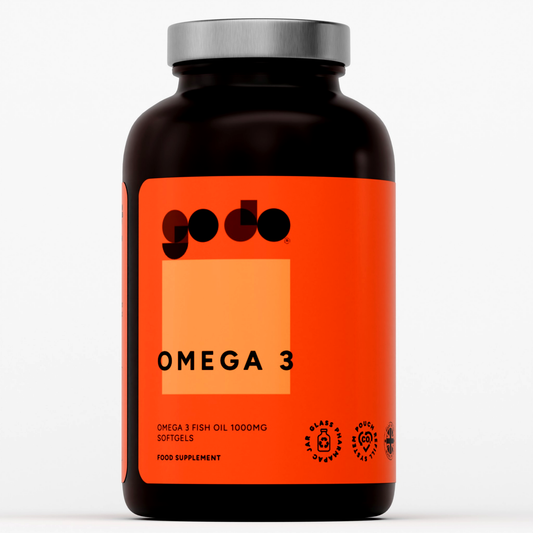Over recent years, creatine has become a popular supplement among athletes and fitness enthusiasts looking to enhance their performance and muscle growth. One common form of creatine supplementation is through capsules, which offer a convenient way to ensure you're getting an adequate amount of this energy-boosting compound. Creatine capsules are known for their ability to supply energy to muscles, improve exercise performance, and aid in muscle recovery after intense workouts. In this blog post, we'll investigate into the benefits of creatine capsules and why they may be a valuable addition to your fitness routine.

Understanding Creatine
Scientific Composition of Creatine
Even though creatine is often associated with muscle growth and energy supply, its scientific composition is important to understand its role in the body. For instance, creatine is composed of nitrogen-containing amino acids like arginine, glycine, and methionine.
Natural Sources of Creatine
Composition of creatine can be found in various natural food sources such as red meat, seafood, and animal milk. These sources provide a significant amount of creatine to the body, contributing to its overall physiological functions.
Composition:
| Red Meat | Pork, veal, and beef. |
| Seafood | Fish and shellfish. |
| Animal Milk | Cow, goat, and sheep milk. |
Creatine Synthesis in the Body
Understanding how creatine is synthesized in the body sheds light on its natural production and utilization. The body naturally produces around half of the required creatine in organs like the liver, kidneys, and pancreas.
Synthesis:
| Naturally Production | Liver, kidneys, and pancreas. |
Creatine and ATP Production
This section examines into the relationship between creatine and adenosine triphosphate (ATP) production, emphasizing the critical role creatine plays in sustaining energy levels during physical activities.
Composition:
| Creatine and ATP | Key in supplying energy during exercise. |
Comparison With Other Dietary Supplements
Creatine's unique properties set it apart from other dietary supplements, particularly in terms of its role in energy supply and muscle growth. When compared with other supplements like protein powders and vitamins, creatine stands out for its specific functions.
Creatine vs. Other Dietary Supplements:
| Creatine | Supplies energy to muscles, aids in muscle growth. |
Key Takeaways:
- Creatine capsules are good for supplying energy to muscles during exercise.
- They can help increase muscle growth and improve exercise performance, especially in short-duration, high-intensity activities like weightlifting and sprinting.
- Creatine supplements may also aid in muscle recovery, preventing severe muscle injuries, and reducing muscle tightness.
- Some studies suggest creatine supplements can benefit individuals with neurodegenerative diseases, diabetes, osteoarthritis, fibromyalgia, and conditions affecting creatine metabolism or transport.
- Creatine is relatively safe, but side effects may include weight gain due to water retention, dizziness, nausea, and vomiting. Consulting a healthcare provider before taking creatine is recommended.
Creatine Capsules
Description of Creatine Capsules
Any individual looking to enhance their muscle strength and overall performance may consider incorporating creatine capsules into their daily routine. These capsules contain creatine, a natural compound that provides energy to muscles during physical activity.
Advantages of Capsule Form
For those seeking convenience and precise dosing, creatine capsules offer a straightforward solution. They eliminate the need for measuring powders or liquids, making it easy to take them on the go. Additionally, capsules are tasteless and odorless, making them a more pleasant option for those who may not enjoy the flavors of other creatine supplements.
The encapsulated form of creatine also provides a simple way to ensure consistent intake, allowing individuals to easily track their daily dosage without any hassle.
Disadvantages of Capsule Form
Creatine capsules may have a slower absorption rate compared to other forms such as powdered creatine. This can result in a delayed onset of effects for some individuals, potentially impacting their workout performance.
The convenience of capsules may come at a slightly higher price point compared to other creatine forms, making them less cost-effective for long-term use. Additionally, some individuals may find swallowing capsules to be difficult, which can be a drawback for those with aversions to pill consumption.
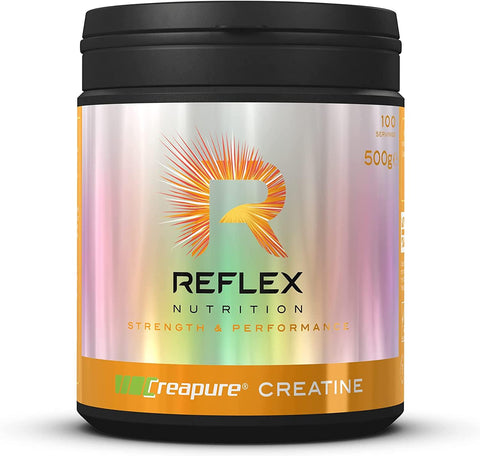
Recommended Brands and Products
I would personally recommend creapure based capsules like the ones offered from reflex nutrition. As the blend of creatine is finer making the absorption into the body faster.
Disadvantages Creatine capsules are available from various brands, each offering their unique formulations and dosages. It is crucial to research and select a reputable brand that aligns with your fitness goals and individual needs.
Additionally, consulting with a healthcare provider can help determine the most suitable creatine capsule product for your specific requirements.
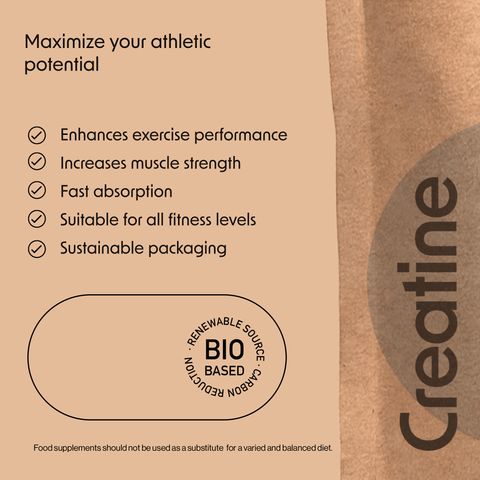
Benefits of Creatine Capsules
Role in Muscle Mass and Strength
The consumption of creatine capsules plays a significant role in enhancing muscle mass and strength. Creatine is a natural energy source that fuels skeletal muscles during exercise, allowing for increased muscle performance. Research indicates that regularly taking creatine supplements, along with exercise, can promote muscle growth, particularly in individuals aged 18 to 30. While the evidence is limited for older individuals or those with muscle-affecting conditions, creatine capsules have shown promising results in building strength and muscle mass in younger populations.
Impact on Exercise Performance
With the ability to provide quick bursts of energy and increased strength, creatine capsules have been shown to improve exercise performance in individuals engaged in activities such as weightlifting, sprinting, and cycling. Research suggests that creatine supplements can aid in muscle recovery, allowing for more intense and prolonged workouts. Athletes in power sports like bodybuilding, football, and hockey often benefit from the performance-enhancing effects of creatine capsules.
To further enhance exercise performance, individuals can consider incorporating creatine capsules into their supplementation routine. It is necessary to consult with a healthcare provider to determine the appropriate dosage and ensure the safe use of creatine supplements.
Creatine Capsules for Cognitive Enhancement
To complement their physical performance benefits, creatine capsules have shown potential for cognitive enhancement, especially in individuals aged 60 and older. Studies suggest that creatine supplements may improve short-term memory, reasoning abilities, and provide neuroprotection. While ongoing research is exploring the use of creatine for cognitive conditions like dementia, the evidence highlights the positive impact of creatine capsules on brain function.
Creatine Capsules for Aging Populations
Aging populations may benefit from the use of creatine capsules to support muscle function and overall well-being. Creatine supplements can aid in maintaining muscle mass, reducing the risk of age-related muscle loss, and enhancing physical performance. With the potential to improve muscle recovery and increase muscle hydration, creatine capsules offer a valuable supplement for older individuals looking to preserve muscle strength and function.
Capsules formulated with creatine provide a convenient and effective way for aging populations to support their muscle health and physical performance. When combined with regular exercise and a balanced diet, creatine capsules can contribute to a healthy and active lifestyle in older adults.
Other Potential Health Benefits
Understanding the various benefits of creatine capsules extends beyond muscle mass and exercise performance. Additional potential health benefits of creatine supplementation include support for individuals with neurodegenerative diseases, diabetes, osteoarthritis, and conditions affecting creatine metabolism. Furthermore, creatine may offer benefits for cardiovascular health by improving blood flow to the heart muscle.
Strength in muscle recovery, hydration, and anabolic hormone production are among the many health benefits associated with creatine supplementation. By incorporating creatine capsules into their wellness routine, individuals can experience a range of advantages that promote overall health and vitality.
Usage Guidelines
Proper Dosage and Timing
The proper dosage of creatine capsules can vary depending on factors such as weight, exercise routine, and individual tolerance. Many experts recommend starting with a daily dose of 3-5 grams to assess how your body responds. It is typically taken before or after a workout to maximize its benefits in supplying energy to your muscles.
Loading Phase: Is It Necessary?
With regards to the loading phase of creatine capsules, it is a common practice among some athletes to initially take a higher dose for a short period (around 20 grams per day) to quickly saturate the muscles with creatine. However, recent studies suggest that a loading phase may not be necessary for everyone, and a lower daily dose can still be effective in achieving desired results.
Maintenance Usage
Proper maintenance usage of creatine capsules involves taking a consistent daily dose over an extended period to maintain elevated creatine levels in the muscles. This phase typically follows the loading phase or can be the starting point for individuals who opt not to undergo the loading phase. It is necessary to consult with a healthcare provider to determine the right dosage for your specific needs.
Cycling Creatine Capsules
One approach to using creatine capsules is cycling, which involves periods of taking creatine followed by periods of not taking it. Some athletes cycle creatine to prevent their bodies from becoming accustomed to the supplement and maintain its effectiveness over time. Cycling can also help avoid any potential side effects associated with long-term creatine use.
Interaction With Other Supplements and Medications
It is necessary to consider the interaction of creatine capsules with other supplements and medications you may be taking. Some medications or supplements may have interactions or interfere with the absorption of creatine, affecting its effectiveness. Consult with a healthcare provider before starting a creatine regimen to ensure it is safe and compatible with your current health status and medications.
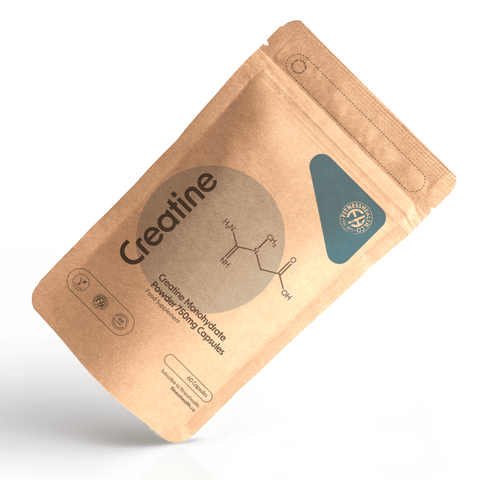
Creatine Capsules for Athletes
Despite the controversies surrounding creatine supplements, they are widely used by athletes to enhance their performance and improve muscle strength. Creatine capsules, in particular, offer a convenient and easy way to incorporate this supplement into a daily routine. For athletes looking to optimize their workouts and achieve better results, creatine capsules can be a valuable addition to their regimen.Benefits for Different Types of Athletes
- Capsules provide a convenient and precise way to supplement with creatine
- Enhances muscle strength and power
- Improves overall athletic performance
- Supports muscle recovery after intense training
- May benefit various types of athletes, including bodybuilders, football players, and wrestlers
Creatine Capsules in Resistance Training
Resistance training athletes, such as bodybuilders and weightlifters, can benefit greatly from creatine capsules. These supplements can help increase muscle size and strength, leading to improved performance in the gym. By supporting muscle recovery, creatine capsules allow athletes to push themselves harder during training sessions, ultimately leading to greater gains in muscle mass and power.Athletes engaging in resistance training can benefit from the enhanced muscle-building effects of creatine capsules. By increasing phosphocreatine stores in the muscles, creatine helps facilitate the production of ATP, the body's primary energy source during high-intensity exercise.
Endurance Sports and Creatine Capsules
Athletes participating in endurance sports, such as running, cycling, and swimming, may also find value in using creatine capsules. While traditionally associated with strength and power activities, creatine supplements can also enhance energy production and endurance performance. By increasing the availability of ATP, creatine capsules can help athletes sustain their efforts for longer durations, leading to improved endurance and stamina.Different types of athletes can benefit from the performance-enhancing effects of creatine capsules. Whether engaging in high-intensity resistance training or endurance sports, creatine supplementation can support muscle function, energy production, and overall athletic performance.
Sport-Specific Creatine Protocols
Athletes in specific sports may benefit from tailored creatine protocols to optimize their performance. By adjusting the timing and dosage of creatine supplementation, athletes can target their training needs more effectively. Sport-specific creatine protocols take into account the unique demands of each sport and aim to maximize the benefits of creatine supplementation for athletes in those disciplines.Another benefit of creatine capsules is their versatility in supporting a wide range of sports and training regimens. By following sport-specific creatine protocols, athletes can fine-tune their supplementation to align with their performance goals and training requirements.
Risks and Side Effects
Dispelling Creatine Myths
Keep in mind that there are many misconceptions about creatine supplements. Any rumors suggesting creatine causes dehydration, muscle cramps, or kidney damage have been debunked by scientific research. In fact, creatine is safe for most individuals when taken within recommended doses.
Documented Side Effects
Creatine supplements have been extensively studied, and the documented side effects are minimal. While some individuals may experience mild side effects such as weight gain due to water retention or gastrointestinal discomfort, these effects are typically temporary and can be managed by adjusting the dosage. Creatine, when taken responsibly, is a generally well-tolerated supplement.
Long-Term Safety of Creatine Capsules
Myths surrounding the long-term safety of creatine capsules have been dispelled through years of research. An overwhelming body of evidence suggests that when used as directed, creatine supplements are safe for long-term consumption. In fact, creatine has been shown to have potential benefits beyond muscle growth, including cognitive function and neuroprotection.
Special Considerations for Certain Populations
With regard to special populations, it's important to note that creatine supplements may not be suitable for everyone. For instance, individuals with pre-existing kidney or liver conditions should consult with a healthcare provider before incorporating creatine capsules into their regimen. Additionally, pregnant or breastfeeding individuals, as well as those with certain medical conditions, should seek medical guidance before starting a creatine supplement routine.

Creatine Capsules vs. Other Forms
Many individuals wonder about the differences between creatine capsules and other forms of creatine supplementation. When comparing creatine capsules to powders, it's important to note that both forms contain the same active ingredient, creatine monohydrate. However, the main distinction lies in convenience and ease of consumption. Creatine capsules offer a more straightforward way to ensure precise dosage without the need for mixing or measuring. On the other hand, creatine powders may provide more versatility in adjusting dosage based on individual preferences or requirements.Powder vs. Capsules
On the topic of liquid creatine, it is worth mentioning that liquid forms of creatine have emerged as an alternative option for supplementation. Liquid creatine is a pre-dissolved form of creatine that may offer faster absorption compared to powders or capsules. However, some argue that the stability and potency of liquid creatine supplements may vary, leading to potential concerns about efficacy and reliability. An understanding of creatine chews and other innovations in creatine supplementation showcases the continuous evolution of this popular dietary supplement. Creatine chews provide a convenient and portable way to consume creatine on the go, catering to individuals with busy lifestyles or preferences for chewable formats. Other innovations in creatine supplementation include energy bars and new delivery systems designed to enhance absorption and bioavailability. These options offer versatility for users seeking alternative methods of incorporating creatine into their daily routines.Monitoring and Adjusting Creatine Intake
Personalizing Your Creatine Dosage
The individualized approach to creatine intake is necessary for optimizing its benefits. The right dosage varies based on factors such as age, fitness level, and specific health conditions. It is recommended to start with a loading phase, typically around 20 grams per day for 5-7 days, followed by a maintenance phase of 3-5 grams daily. This protocol may need to be adjusted based on your response to the supplement and your desired outcomes.
Signs You Might Need More or Less Creatine
Personalizing your creatine dosage requires paying attention to indicators that may suggest a need to adjust your intake. Signs that you might need more creatine include experiencing muscle fatigue or noticing a plateau in your performance gains. On the other hand, signs that you might need less creatine include side effects like weight gain from water retention or digestive issues like nausea or diarrhea. It's important to listen to your body's signals and make adjustments accordingly.
Your consultation with healthcare providers will play a crucial role in ensuring that your creatine intake is tailored to your specific needs. Healthcare providers can assess your medical history, current health status, and fitness goals to provide personalized recommendations for creatine supplementation. By discussing your individual circumstances with a healthcare provider, you can optimize the effectiveness of creatine while minimizing any potential risks.
Consultation with Healthcare Providers
Creatine supplementation can have varying effects based on an individual's unique physiology and health profile. Consulting with a healthcare provider before starting or adjusting your creatine intake is recommended to ensure that the supplement is safe and beneficial for you. Healthcare providers can offer valuable insights and guidance to help you make informed decisions about incorporating creatine into your fitness regimen.
Understanding the importance of professional guidance when it comes to creatine intake can lead to a more effective and tailored approach to supplementation. By collaborating with healthcare providers, you can optimize the benefits of creatine while navigating any potential challenges or concerns that may arise.
The Impact of Diet and Lifestyle
How Diet Influences Creatine Needs
Now, when considering the impact of diet on creatine needs, it's important to note that about half of the body's creatine comes from dietary sources such as red meat, seafood, and animal milk. For individuals who may not consume these types of foods regularly, creatine supplements can play a beneficial role in ensuring adequate creatine levels for muscle performance and energy supply.
The Role of Hydration
To optimize the effects of creatine capsules, hydration plays a crucial role. Adequate hydration is necessary for the body to effectively utilize creatine and maintain muscle function during exercise. Any decrease in hydration levels can impact the body's ability to properly absorb and utilize creatine, potentially diminishing its effectiveness.
Adequate hydration not only supports creatine efficacy but also helps prevent potential side effects such as dehydration and muscle cramps. It is recommended to stay well-hydrated, especially when supplementing with creatine, to maximize the benefits and minimize any adverse reactions.
Exercise and Its Effects on Creatine Efficacy
Role: A key aspect to consider when discussing creatine supplementation is the role of exercise on its efficacy. Regular physical activity, particularly high-intensity resistance exercises, can enhance the effects of creatine on muscle growth and performance. Understanding how exercise impacts creatine utilization can help individuals tailor their supplementation and workout routines for optimal results.
Regular exercise, combined with creatine supplementation, has been shown to improve exercise performance, support muscle recovery, and increase muscle mass. By incorporating creatine capsules into a well-rounded exercise regimen, individuals can potentially experience enhanced strength gains and improved athletic performance.
Research and New Developments
Cutting-Edge Studies on Creatine
For athletes and fitness enthusiasts looking to enhance their performance, recent studies on creatine have shown promising results. Research indicates that regular creatine supplementation, in combination with exercise, can significantly increase muscle growth and strength in individuals aged 18 to 30. While further research is needed to determine the effects on older individuals or those with muscle-related diseases, current findings highlight the potential benefits of creatine in optimizing physical performance.
Future Forms of Creatine Supplementation
Future developments in creatine supplementation may offer innovative ways to support muscle function and overall health. Studies suggest that novel forms of creatine, such as micronized or buffered creatine, could enhance absorption and effectiveness compared to traditional creatine monohydrate supplements. These advancements may provide individuals with more tailored options for optimizing their exercise routines and achieving their fitness goals.
It is crucial for researchers and manufacturers to continue exploring new formulations and delivery methods for creatine supplements to meet the diverse needs of individuals seeking to improve muscle performance and overall wellness.
Understanding the Genetic Link to Creatine Utilization
For a deeper insight into the role of genetics in creatine utilization, recent studies have focused on uncovering the genetic variations that influence how individuals respond to creatine supplementation. By identifying specific genetic markers associated with creatine metabolism and muscle function, researchers aim to personalize creatine recommendations based on individual genetic profiles. This personalized approach could optimize the benefits of creatine supplementation and enhance athletic performance for a wide range of individuals.
It is crucial to stay informed about the latest research on the genetic aspects of creatine utilization to understand how genetic factors may impact the effectiveness of creatine supplementation and athletic performance.
Consumer Considerations
Choosing Quality Supplements
One of the most crucial aspects to consider when choosing creatine capsules is the quality of the supplement. Look for products that are made by reputable manufacturers and have undergone third-party testing to ensure purity and potency. Checking for certifications from organizations such as the NSF International or USP can also help guarantee that you are getting a high-quality product.
Cost-Effectiveness of Creatine Capsules
Supplements can vary in cost, so it's important to consider the cost-effectiveness of creatine capsules. While creatine supplements are generally affordable, comparing prices and looking for discounts or bulk deals can help you save money in the long run. Additionally, considering the benefits of creatine capsules, such as improved exercise performance and muscle growth, can help justify the investment in these supplements.
Quality
Availability and Accessibility
For many consumers, the availability and accessibility of creatine capsules play a significant role in their decision-making process. Creatine supplements are widely available in various retail outlets, online stores, and pharmacies, making them easily accessible to a wide range of individuals. This accessibility ensures that individuals can conveniently purchase creatine capsules to support their fitness goals and overall health.
This text focuses on key consumer considerations when it comes to choosing and utilizing creatine capsules. By understanding factors such as quality, cost-effectiveness, and availability, individuals can make informed decisions about incorporating creatine supplements into their health and fitness routines.
Controversies and Misconceptions
Creatine in the Media
With creatine being a popular supplement among athletes and fitness enthusiasts, it has often garnered attention in the media. Despite its proven benefits in improving exercise performance and muscle growth, creatine has faced scrutiny and misconceptions in various reports and articles. Some media outlets have sensationalized potential side effects or exaggerated claims without proper scientific evidence to back them up.
Wading Through Misinformation
On the journey of understanding creatine, it is crucial to wade through misinformation that may cloud its benefits. Misconceptions about creatine causing harm to the kidneys or liver have circulated, leading to confusion among consumers. However, research indicates that creatine is safe for most people when taken in recommended doses. It is crucial to rely on reputable sources and consult healthcare providers for accurate information.
Doping and Legal Considerations in Sports
Legal considerations related to the use of creatine in sports have also been a topic of debate. While creatine is a legal supplement accepted by major sports organizations like the International Olympic Committee and the NCAA, concerns about doping have been raised. Athletes need to be aware of the regulations surrounding creatine use in competitive sports to ensure compliance with anti-doping policies.
Recommendations for Specific Populations
Creatine Capsules for Vegans and Vegetarians
Unlike individuals who consume animal products, vegans and vegetarians may have lower levels of creatine in their bodies since they do not get it from sources like red meat or seafood. In such cases, creatine capsules can be particularly beneficial in helping vegans and vegetarians meet their daily creatine needs. Any individual following a plant-based diet should consider adding creatine capsules to their supplement routine after consulting with a healthcare provider.
Creatine Capsules for Older Adults
One important consideration for older adults is the potential benefits of creatine capsules in aiding muscle strength and cognitive function. Research suggests that creatine supplements may help improve muscle strength and brain function in adults over 60 years old. Capsules containing creatine can be a convenient way for older adults to incorporate this supplement into their daily regimen to support overall health and wellness.
This population may also experience age-related muscle loss and reduced cognitive function, making the use of creatine capsules potentially beneficial in maintaining muscle mass and supporting cognitive health. Older adults should consult with a healthcare provider before starting a creatine supplementation regimen to ensure it is safe and appropriate for their individual needs.
Creatine Capsules for Children and Adolescents
Children and adolescents involved in regular physical activity or sports may also benefit from creatine supplementation to potentially enhance their exercise performance and muscle growth. Creatine capsules can provide a convenient and controlled way to incorporate creatine into their diet, under the guidance of a healthcare provider.
Gender Differences in Creatine Use
Research suggests that while both men and women can benefit from creatine supplementation, men may experience greater muscle gains compared to women. The differences in muscle mass and hormonal composition between genders can influence the response to creatine supplementation. Children and adolescents may also exhibit varying effects based on gender. Creatine use should be tailored to individual needs, and healthcare provider guidance is recommended for all populations considering creatine supplementation.
Creatine Capsules and Hydration
Importance of Water Intake with Creatine
Not only are creatine capsules beneficial for muscle performance and growth, but they also play a crucial role in hydration. Adequate water intake is vital when taking creatine supplements to ensure optimal effectiveness. Creatine helps boost water content in muscle cells, which can aid in muscle growth and reduce dehydration and muscle cramps.
Dehydration Myths
The notion that creatine causes dehydration is a common misconception. The reality is that creatine actually helps increase muscle hydration, leading to better performance and recovery. The idea that creatine causes dehydration is a myth that should be dispelled, as proper hydration is key to maximizing the benefits of creatine supplementation.
The myth of creatine causing dehydration may stem from the fact that some users initially experience water retention as a side effect of the supplement. This temporary weight gain due to water retention can lead to misconceptions about dehydration, but it is important to understand that proper hydration is vital for supporting muscle function and overall health.
Electrolytes and Creatine Absorption
Importance of maintaining proper electrolyte balance cannot be overstated when taking creatine supplements. Electrolytes play a vital role in muscle function and can impact the absorption of creatine in the body. Ensuring adequate intake of electrolytes such as sodium, potassium, and magnesium can enhance the effectiveness of creatine supplementation and overall muscle performance.
Water and electrolytes work synergistically to support muscle function and optimize the benefits of creatine supplementation. By maintaining proper hydration and electrolyte balance, individuals can maximize the effects of creatine capsules and support their fitness goals effectively.
FAQs About Creatine Capsules
Top Questions Answered
Capsules are a convenient way to consume creatine supplements for those who prefer an easy and precise dosage. They provide a measured amount of creatine for your daily intake, making it simple to incorporate into your routine. Individuals often wonder about the recommended dosage, potential side effects, and how creatine capsules can benefit their fitness goals.
Expert Advice
One of the key considerations when taking creatine capsules is to ensure you are following the recommended dosage based on your specific needs and fitness goals. Consulting with a healthcare provider or a nutritionist can help determine the ideal dosage that aligns with your individual requirements. They can also provide guidance on how creatine capsules can complement your exercise regimen and overall health.
Another aspect to consider is the quality and reputation of the brand from which you purchase your creatine capsules. It is important to choose a reputable manufacturer that follows good manufacturing practices to ensure the safety and effectiveness of the supplement you are taking.
Resources for Further Information
FAQs
To research deeper into the world of creatine capsules, you can explore reputable sources such as academic medical centers and research institutions. These sources often provide valuable information on the benefits, usage, and potential risks associated with creatine supplementation. By expanding your knowledge through reliable resources, you can make informed decisions about incorporating creatine capsules into your wellness routine.
Conclusion
Taking this into account, creatine capsules are good for increasing muscle strength and promoting brain health. They provide a convenient and effective way to supplement your diet with creatine, which is necessary for supplying energy to your muscles during exercise. Creatine capsules are particularly beneficial for individuals who engage in regular physical activity, including athletes looking to improve their performance and recovery. Additionally, creatine supplements may have potential cognitive benefits for older adults and individuals with certain neurological conditions.
